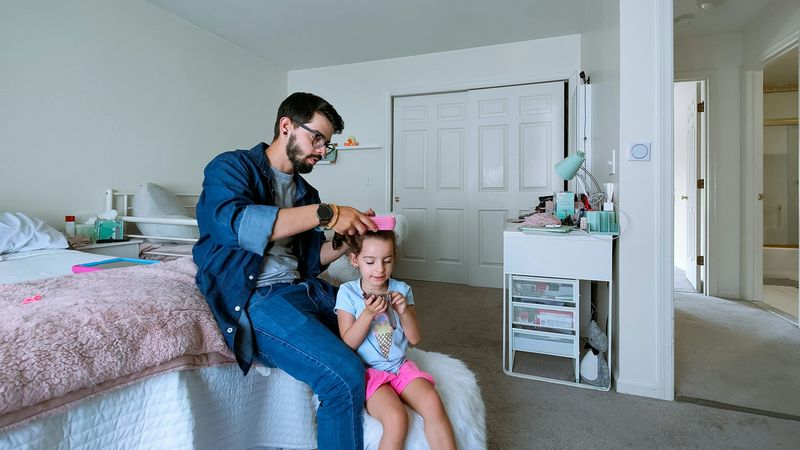10 Common Stereotypes About Men That Aren’t True

Society has created many unfair assumptions about men that simply don’t hold up when you look closer. These stereotypes can hurt everyone by limiting how men express themselves and connect with others. Breaking down these outdated beliefs helps create a world where people can be their authentic selves without fear of judgment. Today, we’re exploring ten common misconceptions about men that deserve to be challenged.
1. Men Don’t Have Emotions

Boys grow up hearing phrases like “man up” or “don’t cry,” which teaches them to bottle up feelings instead of expressing them. This doesn’t mean men lack emotions—it means they’ve been trained to hide them from a young age.
Research shows that men experience the full range of human emotions just as deeply as anyone else. Sadness, joy, fear, and love all register in their hearts and minds with equal intensity.
When society tells men to suppress their feelings, it creates serious mental health challenges. Depression, anxiety, and stress can build up when there’s no healthy outlet for emotional expression, leading to long-term consequences that affect relationships and well-being.
2. Men Only Care About Appearance or Status

Pop culture often paints men as shallow beings focused solely on looks and climbing social ladders. Reality tells a completely different story that deserves recognition and understanding.
Most men form deep friendships based on shared values, loyalty, and trust rather than superficial qualities. They invest time in relationships that matter, support friends through difficult times, and seek partners who share their core beliefs and life goals.
Studies on male friendships reveal that men value authenticity and dependability above all else. Whether it’s a lifelong buddy or a romantic partner, genuine connection trumps surface-level attraction every single time for the vast majority of men.
3. Men Aren’t Nurturing

Walk into any playground and you’ll see dads patiently teaching their kids to ride bikes, coaches encouraging young athletes, and male teachers inspiring students. Nurturing isn’t programmed into one gender—it’s a human quality that everyone possesses.
Fathers who take active roles in childcare form bonds just as strong as mothers do. They comfort crying babies, read bedtime stories, and provide emotional support that shapes their children’s development in profound ways.
Male nurses, counselors, and caregivers demonstrate daily that compassion knows no gender boundaries. The stereotype that men can’t be tender or patient crumbles when you witness the countless ways men show up with warmth and understanding for those who need them.
4. Men Don’t Like to Communicate

Communication styles vary widely among all people, not just between genders. Some men prefer direct conversations while others enjoy lengthy discussions—just like everyone else in the world.
The real issue isn’t that men don’t want to communicate. Traditional masculine norms discourage boys from talking about feelings or asking for help, creating adults who feel awkward opening up even when they desperately want to share.
When men feel safe and respected in conversations, they become incredibly articulate about their thoughts and emotions. Creating judgment-free spaces where vulnerability is welcomed helps men express themselves more freely, leading to healthier relationships and better understanding between all people regardless of gender identity.
5. Men Have to Be the Breadwinners

Decades ago, most households operated with men working outside while women managed the home. Times have changed dramatically, yet the pressure on men to be primary earners stubbornly remains.
This outdated expectation creates unnecessary stress and limits family choices. When both partners share financial responsibilities, households often thrive with less pressure on any single person and more flexibility in career decisions.
Stay-at-home dads, men in supportive roles, and couples who split earning duties equally prove that financial contribution doesn’t define someone’s worth. True partnership means playing to each person’s strengths and circumstances rather than following rigid rules based on gender alone. Modern families flourish when they reject these limiting beliefs.
6. Men Don’t Need Support

“Be strong” and “handle it yourself” are messages boys hear constantly, creating adults who struggle to ask for help even during their darkest moments. This harmful myth contributes to higher suicide rates among men.
Everyone faces challenges that require outside support, whether it’s grief after loss, workplace stress, or mental health struggles. Men deserve access to therapy, support groups, and caring friends without shame or judgment attached.
Reaching out for help demonstrates courage, not weakness. When men feel empowered to seek support, they recover faster from setbacks, build stronger relationships, and model healthy behavior for the next generation. Breaking the silence around male struggles saves lives and creates healthier communities for everyone involved.
7. Men Avoid Commitment

Romantic comedies and sitcoms love portraying men as commitment-phobic beings who run from serious relationships. This tired trope doesn’t reflect reality for most men seeking meaningful connections.
Plenty of men actively pursue long-term partnerships, marriage, and family life because they value stability and deep connection. The desire for commitment isn’t gender-specific—it depends on individual readiness, life circumstances, and finding the right partner.
Cultural narratives that paint men as eternal bachelors do everyone a disservice. They pressure men to act disinterested in relationships even when they’re not, and they unfairly blame an entire gender for what are actually individual personality differences. Most men want love and partnership just as much as anyone else does.
8. Men Are Bad Listeners

Listening has nothing to do with chromosomes and everything to do with practice, empathy, and respect. Many men excel at listening when they feel valued and when conversations matter to them personally.
The stereotype often stems from different communication styles rather than actual listening ability. Some people process information silently while others think out loud, but neither approach makes someone a better or worse listener overall.
Men who work as counselors, mediators, and customer service professionals prove daily that listening skills transcend gender. Teaching everyone—regardless of gender—to listen actively and empathetically creates better relationships. When men receive encouragement rather than criticism about communication, their natural listening abilities shine through beautifully in all types of interactions.
9. Men Aren’t Creative or Expressive

History overflows with male artists, musicians, writers, and innovators who’ve shaped culture through creative expression. Yet somehow, the myth persists that men lack artistic sensibility or imaginative thinking.
Creativity manifests in countless forms beyond traditional arts. Men design buildings, compose symphonies, write novels, choreograph dances, and invent technologies that transform how we live. Problem-solving itself is a creative act that requires imagination and innovation.
Discouraging boys from exploring creative pursuits because they’re “not masculine enough” robs the world of potential brilliance. Every person possesses creative potential waiting to be discovered and nurtured. When we stop gendering creativity, we unlock human potential that benefits everyone through art, innovation, and fresh perspectives on old problems.
10. Real Men Don’t Show Vulnerability

Brené Brown’s research on vulnerability reveals that opening up about fears and struggles actually builds stronger connections and deeper trust. Hiding behind a tough exterior creates distance and loneliness instead.
The strongest men aren’t those who never cry or admit mistakes—they’re the ones brave enough to be honest about their imperfections and struggles. Vulnerability requires tremendous courage because it means risking judgment and rejection.
When men embrace vulnerability, relationships deepen and mental health improves dramatically. Friends become closer, romantic partnerships grow stronger, and children learn healthy emotional expression. True strength lies in authenticity, not in pretending to be invincible. Society benefits when men feel free to be fully human, complete with emotions, doubts, and the occasional need for support.

Comments
Loading…